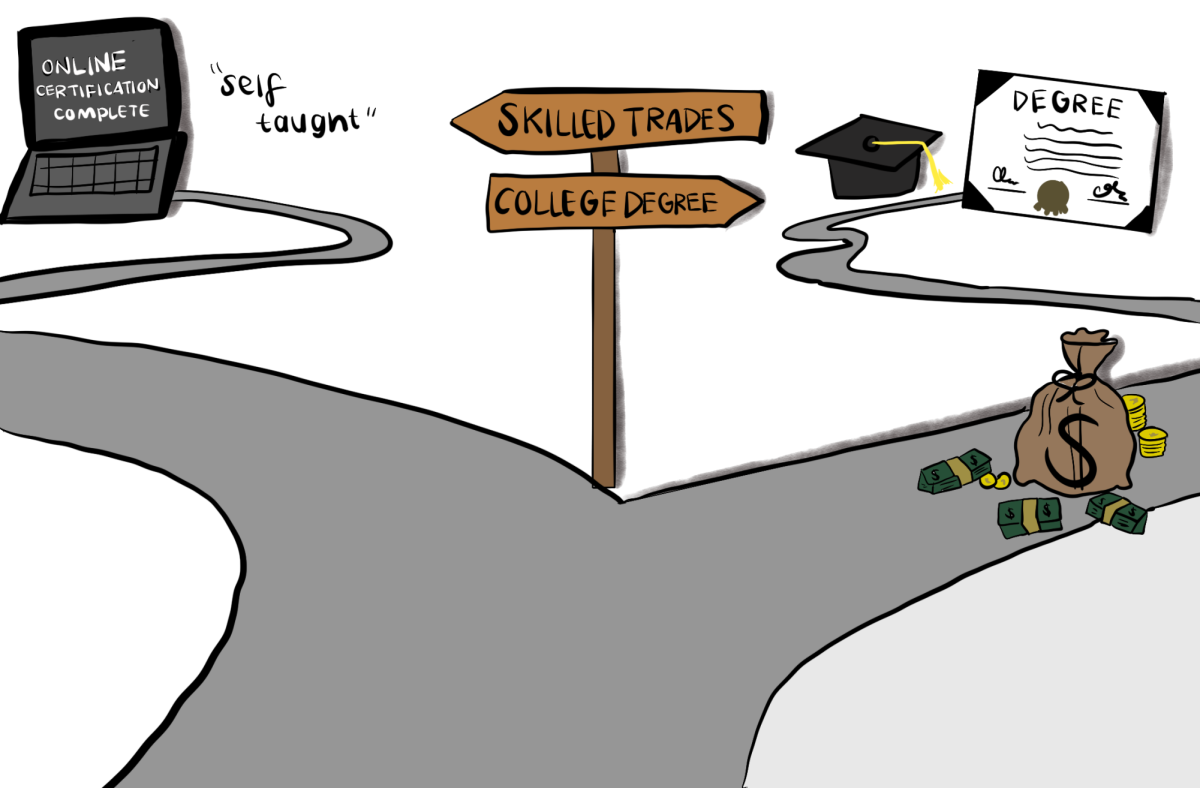Ever since I started high school, I have been hounded by the same question repeatedly: “Which college are you going to attend?” Everyone I know asks. Teachers and counselors and even family and relatives whose calls I’ve ignored ask at every chance they get, almost as though it’s the only thing that matters. Sometimes, it feels like your whole value as a student depends on the name of the school that ends up on your sweatshirt.
The truth is, college is not the only path forward anymore. Sure, some degrees are still worth it, but the reality is that as more people graduate, having a diploma doesn’t really set you apart. Rather, it is the ability to use what you’ve learned that truly matters. As such, a bachelor’s degree cannot completely ensure job security. According to CBS News, recent college graduates are facing an unemployment rate of about 6 percent, which is higher than the national rate of 4.2 percent. This struggle comes from an oversupply of graduates with lower demand, such as computer science, which are being replaced by artificial intelligence and other machines.
With that in mind, it is not surprising that some students are rethinking the traditional path. I personally know classmates who plan to go into trades like automotive tech because they will earn money straight out of high school rather than face potential unemployment or student loans. Others I know are considering community college at Mount San Antonio College (Mt. SAC) to save money while still deciding on the degree they’d like to pursue. The point is that there are real alternatives that can lead to stability and success without a four-year university. This mindset shows how priorities are changing among graduating students.
“I think seniors should not be too upset about not getting into the college they [want],” senior Reece Miller said. “Mt. SAC has a lot of good programs and I have been looking into trade certificates too, like for electricians and stuff. I’m just [trying] to see what is best for me right now.”
Success after high school should not be treated as if it works the same for everyone. For some, success is embodied through a bachelor’s degree. For others, it is a trade license, a certificate or even building a career online. Students should feel encouraged to look into what actually makes sense for them and not feel trapped by what everyone else thinks is “right.”
Ultimately, what matters is not what university you get accepted to but rather the future that you’ve built for yourself —one based on your own belief of stability, fulfillment and your own desires in life.







